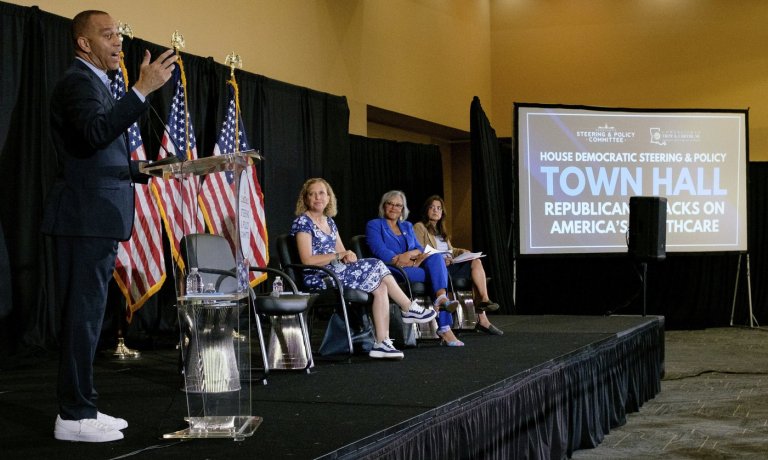Suspect in US movie theatre shooting could enter insanity plea – or case could stall again
CENTENNIAL, Colo. – The suspect in the Colorado theatre massacre could enter his long-expected insanity plea at a hearing Tuesday — though the case could also veer off on another tangent as his lawyers seek the strongest possible defence.
James Holmes is charged with staging a meticulously planned assault on a packed movie theatre in the Denver suburb of Aurora in July. Twelve people were shot and killed, and 70 were injured.
Judge Carlos Samour Jr. has indicated he will allow Holmes to change his plea from not guilty to not guilty by reason of insanity.
But it’s possible that Holmes’ lawyers could ask the state Supreme Court to hear their arguments that state laws on the insanity plea and the death penalty are unconstitutional. That could delay the case for a few days if the high court refuses to take the case, or longer if the justices accept it.
Holmes faces more than 160 counts of murder and attempted murder. Prosecutors are seeking the death penalty.
Holmes’ lawyers say he wants to plead not guilty by reason of insanity — considered his best hope of avoiding the death penalty, and possibly his only hope, given the weight of the evidence against him.
But since late February, they have argued in motions and at hearings that state laws on the insanity plea and on death penalty could hobble the defence if the case gets to the point where the jury decides whether Holmes should be executed.
The laws state that if Holmes does not co-operate during a court-ordered mental health evaluation, he cannot call expert witnesses to testify about his mental state during the penalty phase of his trial. The defence said the law’s restrictions are unconstitutional and that the definition of “co-operate” is vague.
Samour rejected those arguments in a ruling issued Wednesday.
Holmes needs court approval to change his plea because a judge entered a standard not guilty plea on his behalf in March.
Once the plea is finally entered, the judge would advise him of its consequences and then order Holmes to undergo the sanity evaluation, which could take months.
An insanity plea will also renew a legal battle over whether prosecutors should have access to see a notebook that Holmes mailed to a psychiatrist before the shootings.
Media reports have said the notebook contains drawings depicting violence.
The defence has resisted allowing prosecutors to see the notebook, saying it’s protected by doctor-patient privilege.
If Holmes pleads not guilty by reason of insanity, prosecutors will argue that state law entitles them to see the notebook. Defendants who plead insanity are required to turn over some medical and mental health records to prosecutors.
The notebook is one of several issues that have consumed the court’s attention in the 10 months since the shootings. Hearings have been held on the source of a leak to a Fox News reporter about the notebook. The two sides exchanged testy motions about a proposed plea deal that apparently failed to materialize. Holmes has also been taken from his jail cell to a hospital twice for psychiatric treatment, apparently forcing the postponement of one hearing.
___
Follow Dan Elliott at http://twitter.com/DanElliottAP
Join the Conversation!
Want to share your thoughts, add context, or connect with others in your community? Create a free account to comment on stories, ask questions, and join meaningful discussions on our new site.













Leave a Reply
You must be logged in to post a comment.